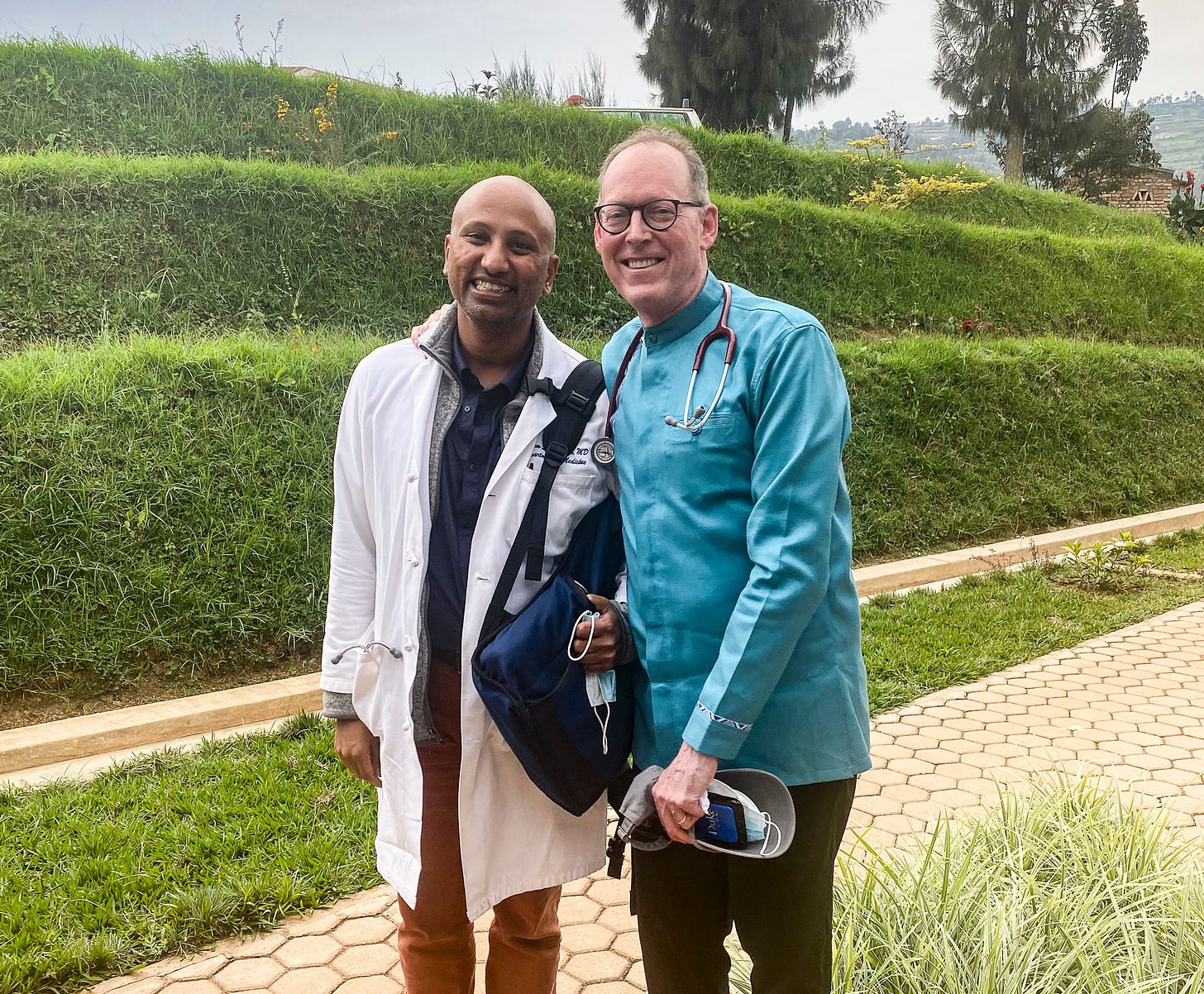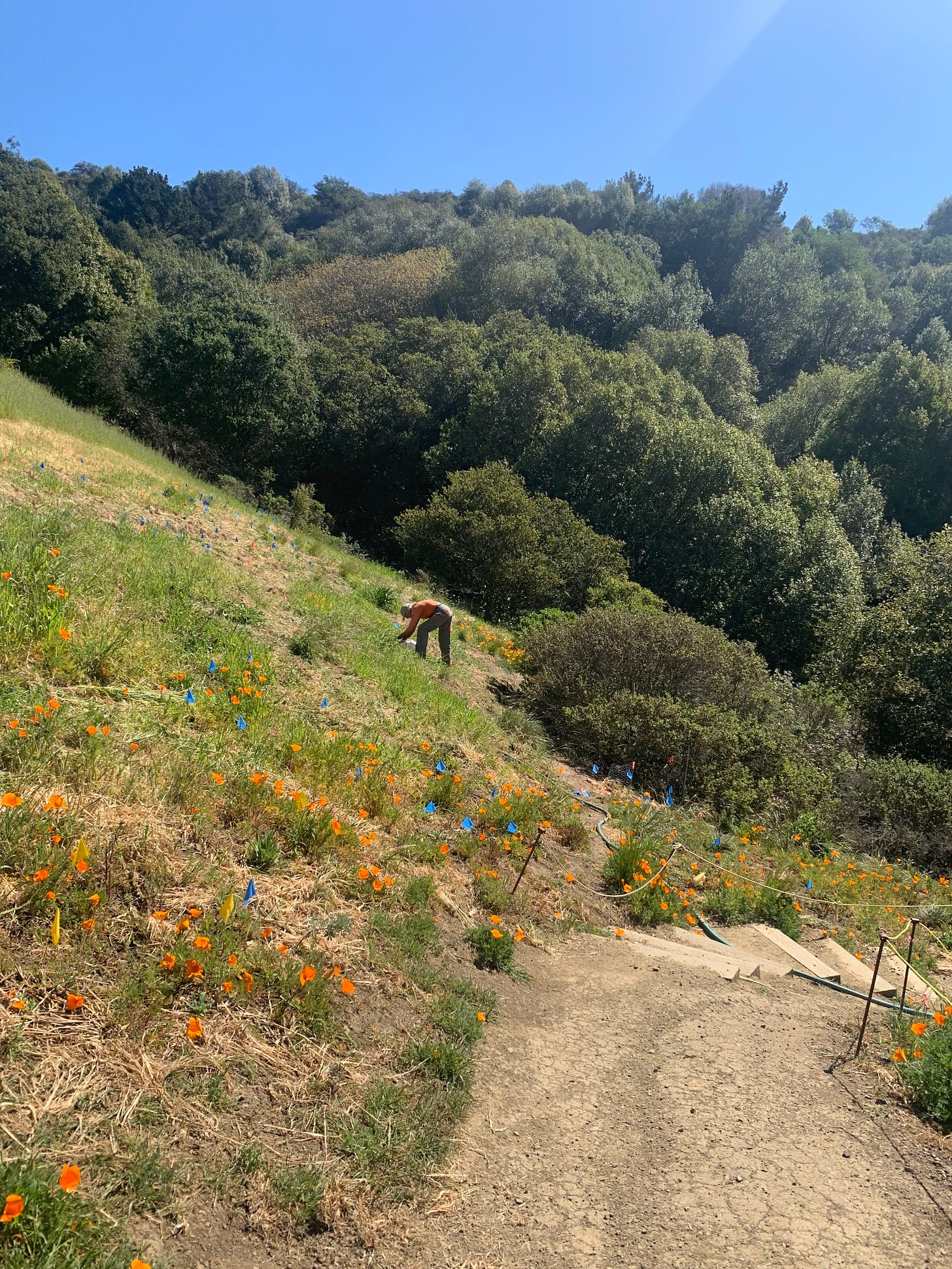I’m excited to speak with a bunch of you on Thursday, 3/31, 4pm PST // 7pm EST for our first-ever Examined Family book club. If you still want to join, register here. We’ve got a bunch of special guests, including physicians who trained under Paul Farmer and carry on his work. It’s going to be such a joy.
I’ve been re-reading Mountains Beyond Mountains and it’s been an absolute intrigue, pleasure, and surprise. Reading it at least a decade later helps me notice so many different things (Tracy Kidder’s “single story” about Haiti, for one). Global health pioneer Paul Farmer was a truly unique man—someone who could weather all kinds of physical and psychic discomfort, time away from his family, and financial insecurity. He’s not exactly a model of anything, other than being himself, so asking “WWPD?” (What would Paul do?)—in the traditional of WWJD? (What would Jesus do?)—is not all that helpful.
In some ways, the book feels more like an allegory for moral imagination, one man’s story that begs every person to ask piercing and hard questions of themselves. Here are some that surfaced for me:
Paul Farmer says: “I have fought the long defeat and brought other people on to fight the long defeat, and I’m not going to stop because we keep losing.”
What is the long defeat you are fighting? Who is with you? How do you keep going?
“How does one person with great talents come to exert a force on the world? I think in Farmer’s case the answer lies somewhere in the apparent craziness, the sheer impracticality, of half of everything he does…”
In what ways could you be more impractical as a way of living your moral truth?
“Of all the world’s errors, he seemed to feel, the most fundamental was the ‘erasing’ of people, the ‘hiding away’ of suffering. ‘My big struggle is how people can not care, erase, not remember.’
In what ways are you hiding from suffering? What rituals and practices could you develop to remember?
“He distrusted all ideologies, including his own, at least a little.”
What question are you holding about your own ideology right now?
“For him, the reward was inward clarity, and the price, perpetual anger or, at best, discomfort with the world, not always on the surface but always there.”
What is the reward and price of the way you move through the world?
What questions do you see for us in the book? Or please, by all means, pick one of these and share your answer in the comments. It will be a great warm-up for our time together. (People have been asking, I will try to record and post this somewhere, though at this specific moment I have no technical idea how that works.)






Could I add an extension of these questions? If you are someone acutely sensitive to all that suffering and part of that effort to fight the long defeat, how do you also survive it all?
Love these questions Courtney. Wish I had the bandwidth to join in the conversation tomorrow.
I had the thought years ago and still live with it today that "I am comforted by my discomfort". That discomfort drives me to do good, to make things better, even just a little bit at a time.
Vulnerability, openness, and honesty with self and others goes a long way when helping and healing.